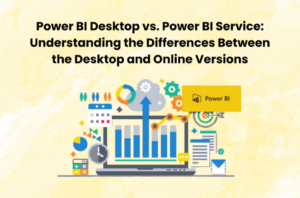AI is an ongoing revolution, and incorporating it into daily operations is not just about adopting a shiny technology, but rather about unleashing a wealth of opportunities.
Artificial intelligence (AI) stood out in 2023 and is also one of the key trends in the job market for this year, 2024. The great reality is that AI is an ongoing revolution that is reshaping industries, boosting productivity, and opening new doors to diverse
opportunities.
Incorporating AI into daily operations isn’t just about adopting a shiny technology, it’s about unlocking countless potentials for a business.
According to a report by the McKinsey Global Institute, it is estimated that AI can boost global productivity by up to 20% by the year 2030. According to another report, this time from PwC, companies that leverage AI see an average 10% increase in profitability due to improved efficiency and data-driven decisions.
We invited Morajikumar Kumar, eCommerce Director at Reeckitt, to talk about the topic and offer his expert perspective. Kumar is a software expert and engineer with over 18 years of experience in data analytics, automation, and AI modeling. According to Kumar, integrating AI in a transparent manner requires careful planning, ethical considerations, and ongoing training. “When done correctly, AI can become a powerful ally in day-to-day operations, driving efficiency, customer satisfaction, and data-driven growth.”
What can we expect for this year and the next?
Integrating AI into companies and industries is not just a future outlook, if we stop to observe it is already possible to see how much this is a present reality. As AI tools become more sophisticated and accessible, their impact on businesses will continue
to evolve, shaping a fascinating and dynamic future. “Imagine a world where humans and AI work side-by-side, not as competitors, but as complementary partners. AI will handle repetitive tasks, data analysis, and complex calculations, freeing up employees humans to focus on their unique skills: creativity, critical thinking, empathy, and social intelligence,” adds Kumar, who currently leads a team of field experts and data engineers.
A recent Pew Research Center survey found that 72% of Americans believe that AI will be used primarily for good, highlighting the importance of building trust and ensuring the ethical use of AI. Speaking of which, as AI becomes more and more integrated into businesses, ethical considerations will become paramount. Issues such as bias, transparency, and accountability will need to be addressed to ensure the responsible and equitable use of AI. According to Morajikumar Kumar, this will lead to a focus on fairness and inclusivity, transparency and explainability, human oversight and accountability.
“The future with embedded AI in the enterprise is exciting, offering limitless potential for growth, innovation, and efficiency. However, it is also a future that requires careful consideration of ethical implications and responsible implementation. By embracing the power of AI while prioritizing human values and ethical considerations, we can navigate this technological revolution and build a future that benefits everyone.”



